Radical Research:
Luna invests in dance research as a way to advance our field. We also investigate what dance research can be, who shares it, who has access to it, and how it can be presented. Our June 2023 Radical Research panel sought to amplify the reflective rigor and depth of discourse of BIPOC dance researchers, whose perspectives are often overlooked. Watch the panel recording to hear how four dance artist scholars are actively shaping the field of research.
Support videos from presentations
Video referenced in Crystal’s presentation
Video referenced in John-Mario’s presentation
Video referenced in Pei-Ling’s presentation
Video referenced in Rosy’s presentation (pw: yo2021)
Audio description
Audio description
Panelists
Crystal's Research:
Crystal U. Davis’ research focuses on the operative mechanisms of implicit bias in Dance and how it pertains to matters of diversity and inclusion in the field. Their central research question addresses how dancers are socialized to see and understand the world and on how that perception affects the ways in which they interpret the physical movement or behaviors of others, the execution of dance performance, and the ability to assess styles of dance or aesthetic choices of dancers that do not align with the viewer’s sensibilities. The foundations and products of their embodied research can be found in the series of conference presentations, invited lectures, and professional development workshops created as well as peer-reviewed articles, chapter contributions to anthologies, and their first book, Dance and Belonging: Implicit Bias and Inclusion in Dance Education.
Crystal U. Davis
John-Mario's Research:
I have been a haumana hula (student of hula) for the last 20 years. Before hula, I was a Philippine folkloric and modern dancer. My life-long dance experiences stir up an ongoing personal investigation into this recurring question, Where do I belong? As a child of Filipino settlers in Hawai’i, my sense of place and community has always been refracted and unsettled by ongoing political, economic and cultural tensions among my own family history of migration from one American colony to another; the indigenous Native Hawaiian community and its battle for self determination; and the American-allied forces that overthrew the Hawaiian nation and has since dominated Hawai’i as a territory and now a state. This fraught question of belonging has followed me to California, as I seek to embody my Filipino settler legacy among other settler, colonial and indigenous presences and to imagine a better future. My body has become a laboratory where contrasting philosophies among indigenous, folkloric, colonized and contemporary dance practices can collide, collude, converge and contrast.
John-Mario Arcilla Sevilla
John-Mario Arcilla Sevilla, Director at Large at Luna, formerly directed the 92Y Harkness Dance Center, Dance Education Laboratory, NYC Ballet’s Education Department and was a recent NYU’s Asia | Pacific | American Institute Visiting Scholar. His choreography has appeared at CounterPulse, The Metropolitan Museum of Art, LaMaMa, NYU Steinhardt, Movement Research at Judson Church, 92Y Tisch Center, Dance Theatre Workshop, Lower East Side Tenement Museum, The Asia Society and Bronx Academy of Art and Dance. He performed with Pilobolus, Alison Chase, Nikolais/Louis, Anna Sokolow, Rebecca Stenn, Lisa Giobbi, Janis Brenner, Erin Dudley, Bill Cratty as well as with juggler Michael Moschen, drag artist Sherry Vine, poet John Unterecker and Diné sand painter/healer Walking Thunder. His modern dance mentors are Betty Jones and Fritz Ludin. He studied Philippine folkloric dance with Agrifina Cabebe, H. Wayne Mendoza and Hana G. Trinidad. From Maui, he is a hula student of Kumu Hula Hōkūlani Holt, June Ka‘ililani Tanoue and Kawika Alfiche. Photo by Julie Lemberger.
Pei-Ling's Research:
We Dance Who We Are
This paper examines my dance training history through the lens of white wash, integration vs. neutralization, dueling consciousness, and decolonization that reflect the journey in making and performing Cover Your Mouth When You Smile. I have been in the dance field for over 30 years, learning different styles of dance in both Taiwan and the U.S. to help intellectually and physically adapt myself to changes in the contemporary dance world. My dance training in conservatories in Taiwan during the ’70s and ’80s, and at the liberal art dance program in the U.S. between 2008 and 2010 reflected political, societal, racial, and cultural issues that were dealt with on two sides of the Pacific. These issues interweave and reinforce the embedded message in the making and dancing in Cover Your Mouth When You Smile.
Pei-Ling Kao
Rosy's Research:
In my own desire to decolonize my physical practice, I shed much of what I knew and began to connect deeply with my ancestors, to land, family, and community. In doing so, I built a physical and intellectual approach to dancing, creating, teaching, researching, and negotiating. In working with dancers and students in movement classes or rehearsals, I ask that they attend to the integration between their senses, physical experience, and nature, through a practice of deep listening. Whether creating a new work with seasoned artists or teaching nondancers, I work with people to move improvisation from deeply sourced generated movement unique to who they are. As sensation occurs from their movement, when sensory receptors detect sensory stimuli, I ask them to look at the ways that perception can organize, interpret, and interpolate conscious experience from their sensations.
